
What does Gen Z believe?
In our annual State of Religion & Young People reports, we survey young people on certain dimensions of religion and spirituality to measure changes from both year to year and over time. These questions of identity, community, belief, and practice help us paint a robust picture of young people’s religious and spiritual experiences.
The prevailing narrative about young people lacking belief or interest in religion, spirituality, or a higher power doesn’t align with our data. In 2023, we asked certain questions about young people’s religious and spiritual identities and beliefs, noting that the patterns from previous years continue to emerge.
A majority of young people continue to identify as religious or spiritual, which suggests that this particular identity and what is associated with it hold salience and value in their lives. More than a quarter of young people say they’ve become more religious or spiritual over the past few years.
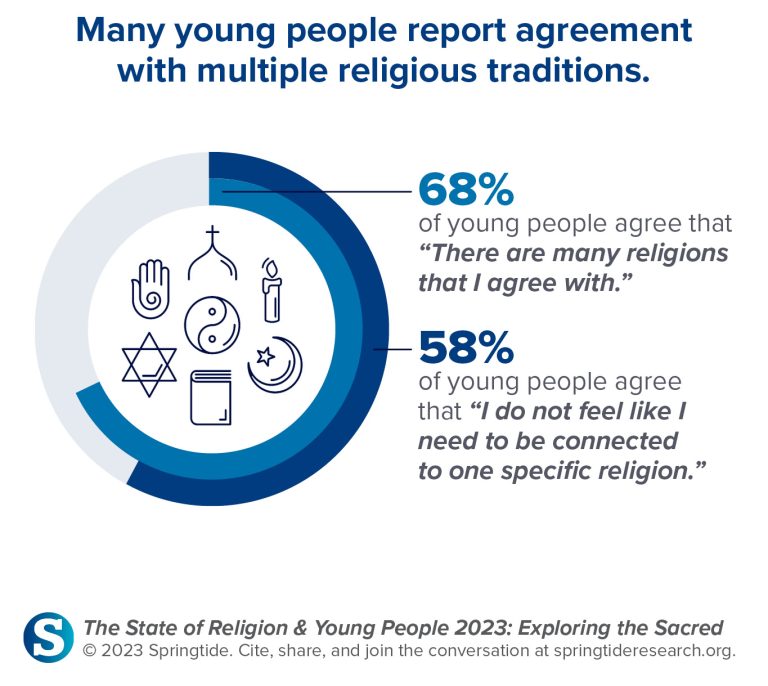
Of the young people we surveyed for this year’s report, a majority identify as Protestant, just Christian, Catholic, or nothing in particular.
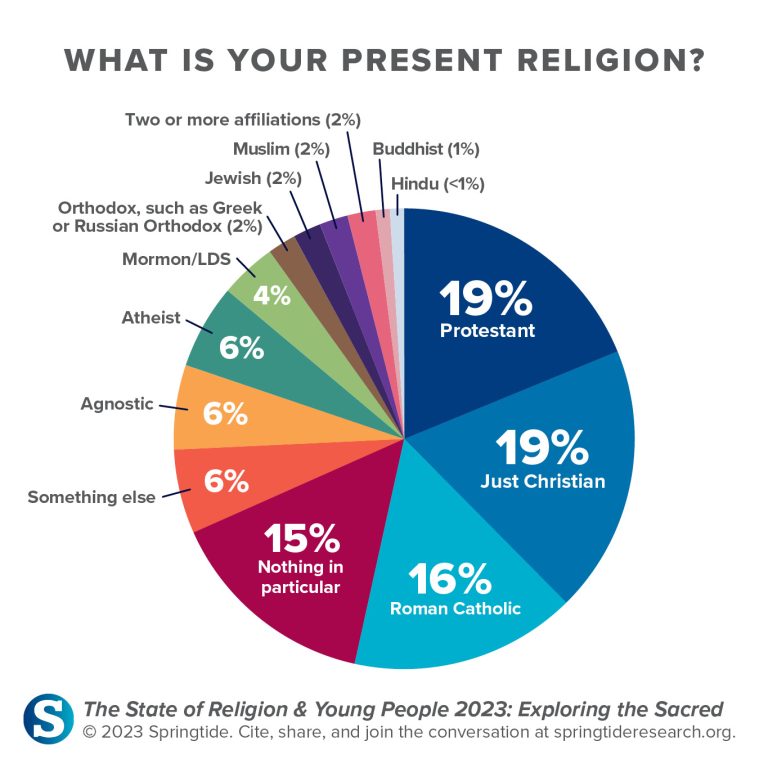
Nearly 30% of young people say they know a higher power exists and have no doubts about it, compared to 15% who say they don’t believe in a higher power at all. Our surveys use the term higher power as opposed to God to account for a diversity of respondents, some of whom do not see a higher power as anything like the God, gods, or divine sources embraced by a given faith tradition.
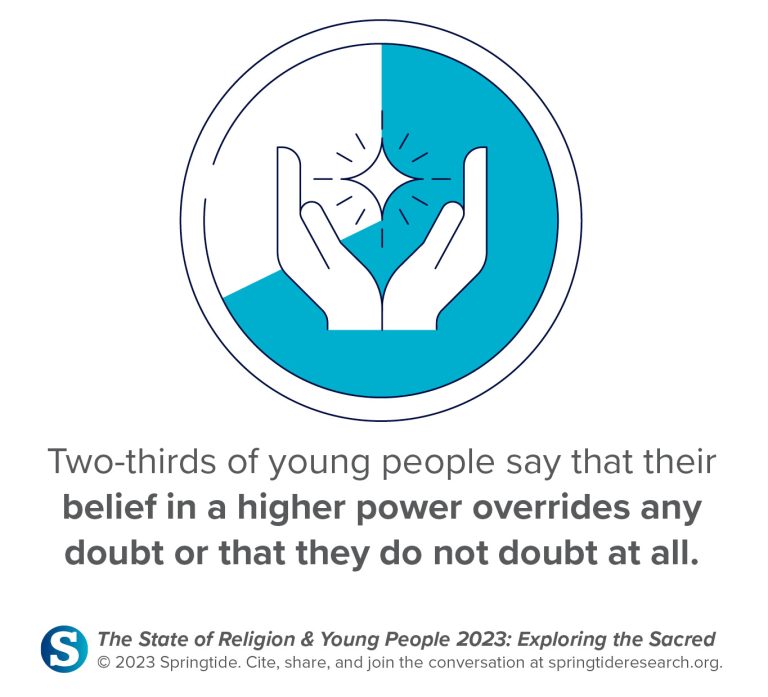
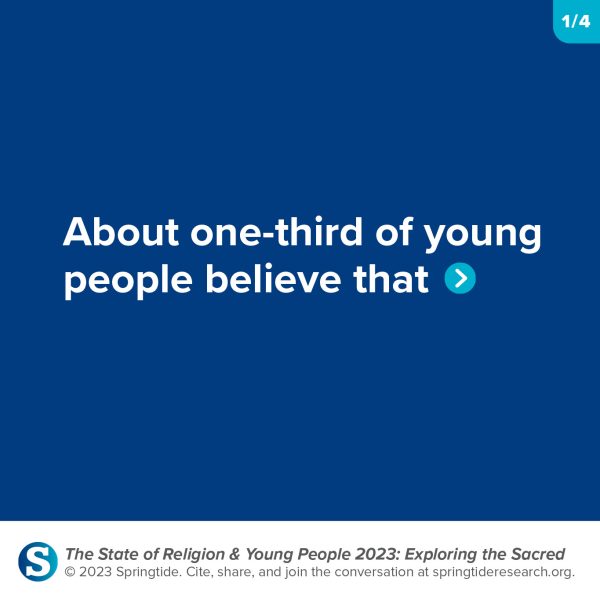
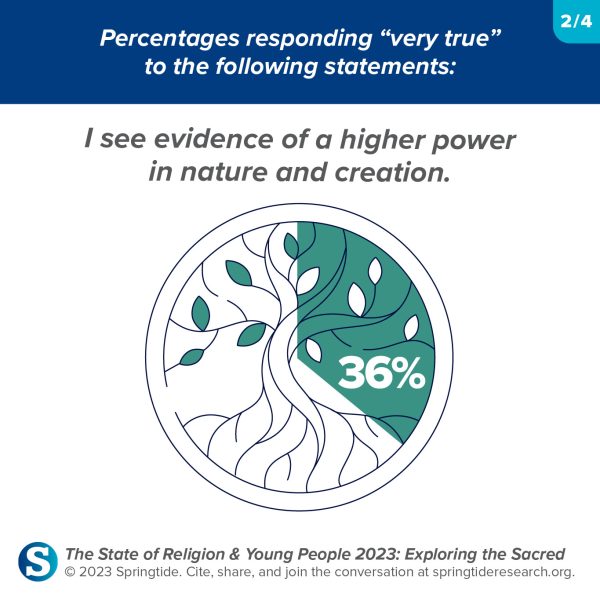
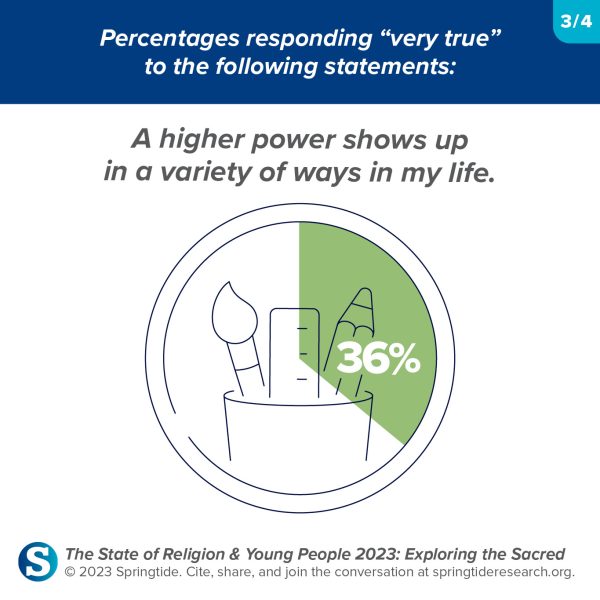
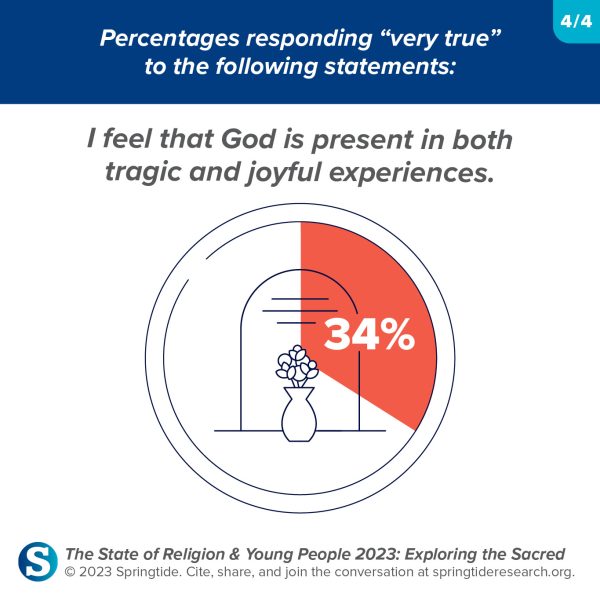
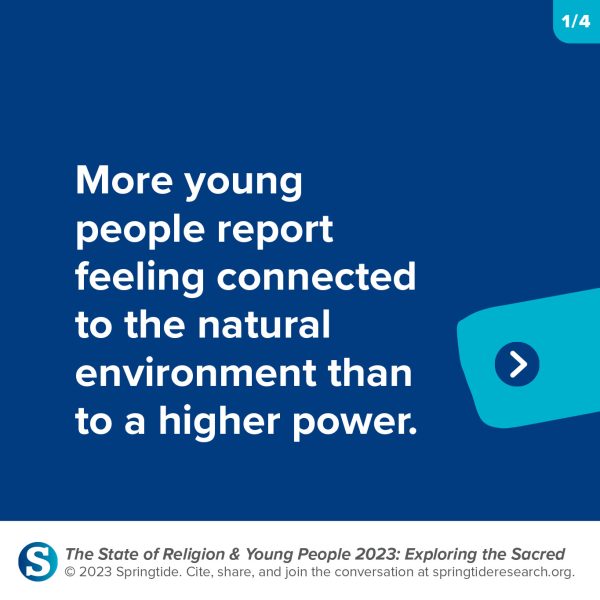
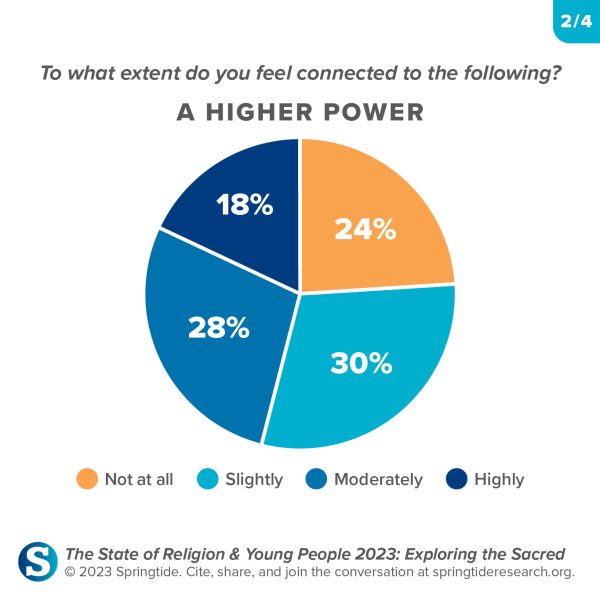
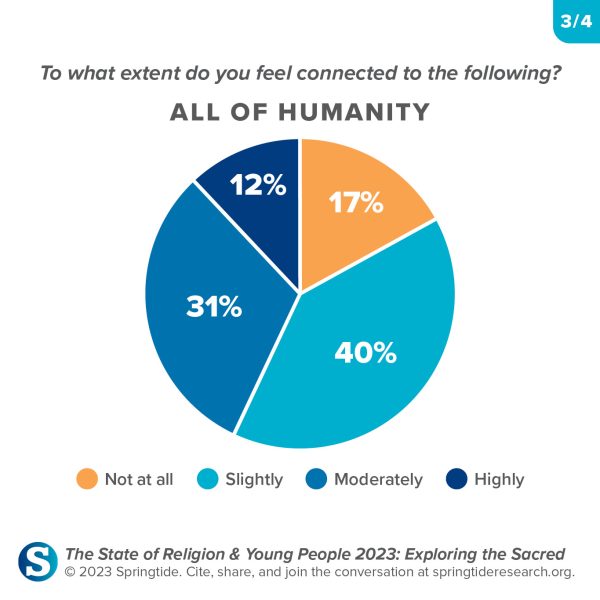
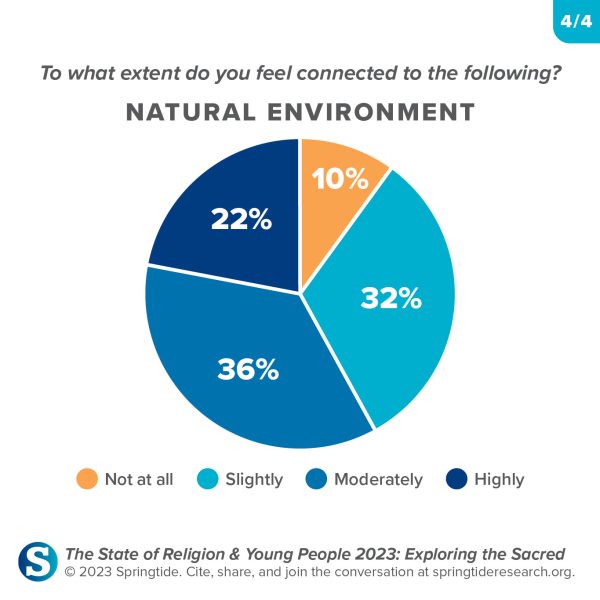
Want to learn more about young people’s religious and spiritual lives? Check out The State of Religion & Young People 2023: Exploring the Sacred.



